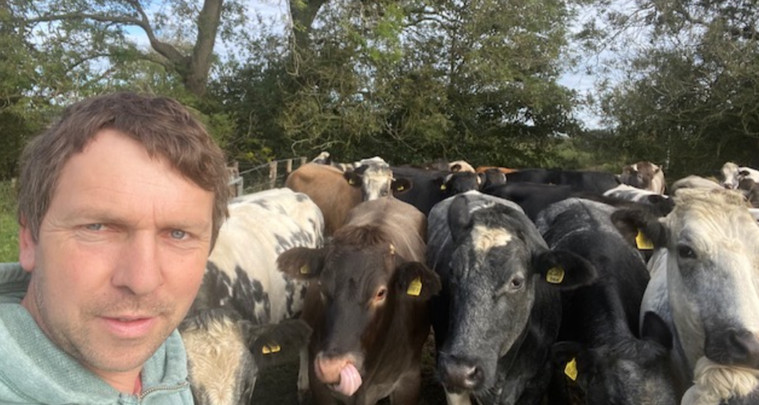Mark Peters, who farms at Plashett Park Farm, Ringmer, near Lewes, is one of many farmers who are anxious to know the details behind DEFRA’s Agricultural Transition Plan.
Like the industry in general, Mark broadly welcomes the change in the way the grant system will switch from area-based subsidies to public money for public goods, but has stressed the need for more clarity on how the change will be handled.
As South East Chairman of the Tenant Farmers Association, he shares the TFA’s view that farmers remain “very worried” about the lack of detail behind the transition. “Things needed to change, but we need more clarity on how they are going to change. We are days away from the changeover and we still don’t know how the two schemes will dovetail with each other,” he said.
Mark, who, as AR Peter and Son, rears 2,000 calves a year for beef as well as growing arable and forage crops on 800 hectares of rented land, receives an annual Countryside Stewardship Scheme payment currently worth around £36,000 and needs to know how that will be affected by the transition arrangements.
“We signed up to a big HLS scheme in 2009 which is currently extended until 30 June 2021,” he said. “At the moment we don’t know how the Environmental Land Management scheme (ELMS) will look or whether we should go into another stewardship scheme. We just need some detail so we can make a decision – and we need it over the next couple of months. The time for talking is over.”
TFA National Chairman Mark Coulman explained: “There is broad acceptance that we need to change the way farmers are rewarded by reallocating money paid through the Basic Payment Scheme (BPS) into schemes targeting public benefits, productivity and resilience. However, the announcement made by DEFRA tells us, with great clarity, how much we will be losing in terms of the BPS without giving anything like the detail needed to understand how this can be recouped through the new schemes.”
By 2024, all current recipients of BPS will have seen their payments reduced by at least half, and while they will be given access to new schemes, no details of the payments available have been released.
“We have been over four years discussing these policy changes and with only days to go before the plan comes into effect in January, it is inexcusable that we find ourselves in the position of lacking much of the essential detail,” Mark said. “We need to have very early engagement with DEFRA on how the new schemes will be rolled out so that farm businesses have the information needed to plan. Apart from what we know we are losing, the way ahead is far from clear.
“It’s good that DEFRA has taken on board the need to learn lessons from current schemes and to develop an approach to payments to provide a fair return to participants, because otherwise ELMS would fail to deliver its objectives. We look forward to working with DEFRA on developing the payment mechanisms. This work must start immediately.”




